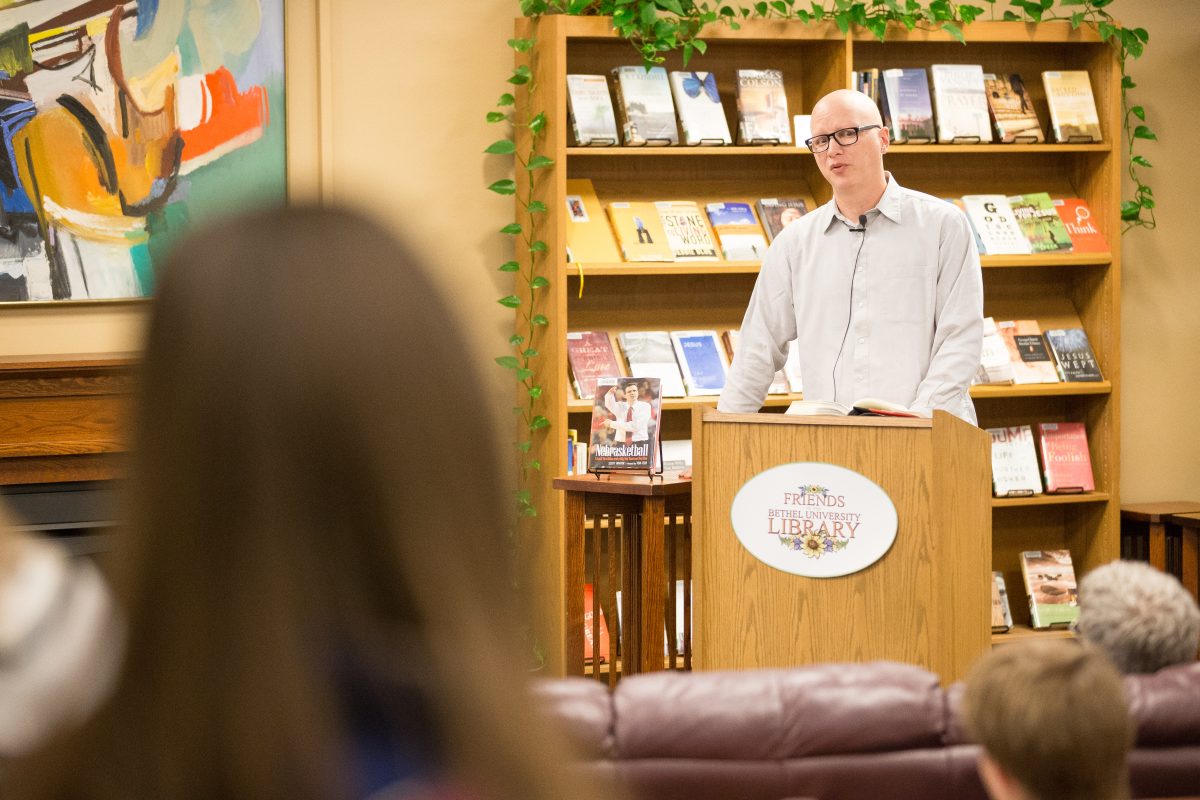How a professor practiced what he taught
by Faith Pyne
Professor Scott Winter has done what most professors only dream of — he put into action what he teaches. In this case, it’s journalism. He left the comfort of his desk and set out to employ the numerous writing lessons he’d given his students. He set out to write a book.
“It’s really important for professors to show students they can practice what they preach, and to keep in touch with the profession they teach,” he said. In addition, Winter admits the book was a long time coming — something he’s wanted to do since high school.
Winter grew up in Bismarck, ND. His dad, Abe, was the sports editor of the local newspaper and asked his son to do three things: empty the dishwasher, clean his room, and go cover that hockey game. Winter didn’t do the first two chores. He did cover the hockey games and was paid minimum wage.
After following elite athletes and covering countless games Winter grew tired of sports writing.
He wanted something more: to be an author.
Winter put his dream on hold for nearly two decades he when got married and had kids. Eventually, Winter settled down with his family in Nebraska and taught journalism, sports reporting and multimedia at The University of Nebraska.
In 2012, Tim Miles became the basketball coach at the University of Nebraska. Miles came from Doland in South Dakota, a town of about 300 people. Winter saw an opportunity to tell a story.
Inspired by author John Feinstein’s Season on the Brink, Winter wanted to embed himself with Miles and the Huskers for the 2013–14 Big Ten basketball season.
The three-month research period began with learning about Miles’ past, and found his six-degrees-of-separation. Winter’s wife, Deena, had attended school with Miles; he’d coached at every place Winter and Deena had ever worked or studied.
“It felt like it was meant to be,” Winter said. “You have to believe in the story and believe that you’re the only person to write it,” Winter added, quoting his Nebraskan colleague Joe Starita.
Over coffee, Winter pitched the idea of the story to Miles.
Winter wrote a proposal to the University of Nebraska Press, and was subsequently granted a contract. With some aid from the press, Winter started the project October of 2013 and did his research before the season started.
He followed the Huskers for nine months until the season was over in March 2014. After the season, he finished his interviews and research and started writing the book with a deadline of November 2014. While writing the book, he was also starting a different chapter in his life at Bethel as an English professor.
“It felt like I was working two full-time jobs at once,” Winter said.
Peyton Witzke, a student of Winter’s at Bethel, said it was evident that he was working hard on his project, but he didn’t let it affect his teaching in her Introduction to News Writing class.
“He never was extremely stressed out, though he did seem a little ‘off’ most days,” Witzke said. “He had to cancel class a couple of times in order to drive back to Nebraska to get in a final interview or do some sort of work for his book.”
Winter met his deadline and finished the book at J. Arthur’s coffee shop on Rice Street a few miles south of Bethel. His renter at the time, Richard Olen, took him out for a celebratory steak dinner at Lindey’s.
The book, titled Nebrasketball, is being sold across the nation. It’s available at Barnes and Noble, on Amazon, and various libraries including Bethel’s. Readings and signings will be held in Nebraska throughout upcoming year.
Nebrasketball gives the reader an all-access look into coach Miles’s life and the 2013–14 season for the Huskers. Winter is adamant that it is not simply a book about sports but one that carries a powerful story.
“I think Tim Miles’s recipe for success is trifold: toughness, tenderness, and a little bit of doofus,” he said.
Winter held his first reading at a Primetime event in the Bethel Library Oct. 1, which was packed with professors and students.
“I think it’s neat that he published a book,” Witzke said. “That’s one of the main goals for many journalism and English students and he serves as an inspirational figure in our department.”
Winter isn’t done yet.
“There’s a next book,” he said, and this one’s going to be a creative non-fiction or fiction piece.























